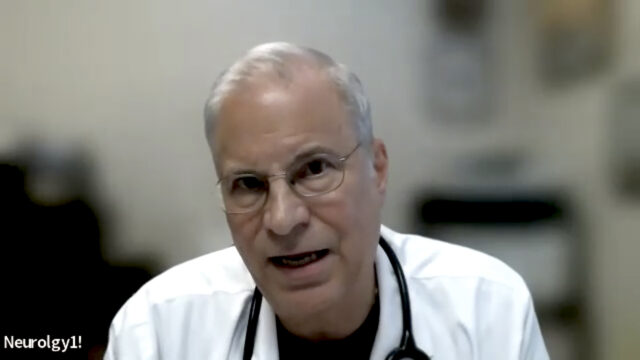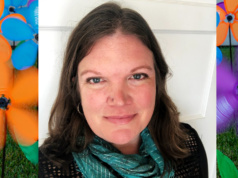Welcome everyone to Answers for Elder’s Radio Network, heard across the United States, and we are here to give you the latest information and updates on Alzheimer’s disease as we’re navigating senior care and today we are talking about Alzheimer’s disease and the path of what happens when we start seeing symptoms. Are these normal? Are all these different things? And we are here courtesy of Athira Pharm,a who is conducting amazing clinical trials for people with early to moderate stage Alzheimer’s. And so we are very honored to have one of the top experts. Dr Winner, welcome to the show.
– Thank you very much. I’m the Senior Director for the Premiere Research Institute, that’s part of a much larger Palm Beach neurology facility.
– That is amazing and we’re so glad to have you with us, looking at solutions for families that are going through the process: Is my loved one okay, I’m not sure, things aren’t right, it just normal aging? What’s happening? There’s a lot of different things going on in the world involving Alzheimer’s disease. And I’m hoping that this hour we can go through the process of what happens when you first see Alzheimer’s disease, and we can talk a little bit about the progression of the disease. So I am so grateful that you’re here with us, Dr. Winner.
– Well, thank you very much. The key issue is that in the beginning, it’s a little sinister. It may present as not being as sharp, and the person kind of notices it, or their family often notices they’re asking the same question. They just answered it. An hour later, they asked the exact same question. You don’t remember that they did, so it can be a little subtle. I think the key thing to remember: for Alzheimer’s disease, the most common initial symptom is the loss of short-term memory, meaning that they’ve just done something and they forgot about it, or they just learned something — they were taught something — and they can’t remember it, or they misplaced an item. But it’s more frequently than normal. And keep in mind, if someone always has trouble with names, they’re not going to get better with age, so that would be normal for them. So they shouldn’t get too upset as they get older, 50, 60, 70, having more trouble remembering a name, that’s not a good barometer. But if they’ve always been really good with names and all of a sudden at 60, they’re having trouble remembering names, that’s a red flag that you get your attention.
– Let me say this, and I hope they hear this, and if they remember anything from this segment: memory loss is not normal in aging. That is very clear to us now as we study this. So this concept that, oh, it’s just a senior moment, well that if that happens once in a month, we all get that. We forget something in our whole life. 18, 20, 30, you don’t even think twice about that. When you start to be in your 50s, 60s, 70s, you start to think, oh my god, am I getting Alzheimer’s. First of all, it takes a long time to get Alzheimer’s. The initial pathology is the deposition or the depositing of something called A beta-42. A toxic protein called amyloid is deposited. It’s 15 to 22 years from the time that metabolic problems starts till we make the clinical diagnosis using clinical signs of Alzheimer’s disease. So a lot of things are happening in the brain. People are normal for a long time while this biology is happening underneath. With regard to the deposition of amyloid, and then there’s another thing that happens. A deposition of another protein happens. The amyloid starts to cause trouble with the synapses, the communications in the brain. That’s when you’re starting to see the short-term memory issues in something called the temporal lobe region. And then you get, essentially, problems with the deposition of another protein called phosphorylated tau nerve cells are starting to die, and now you’re getting more prominent symptoms. All of this takes years to decades happen.
– Can you detect these early synapters way before symptoms start?
– The answer is yes, and that’s one of the most exciting areas. Not only are we aggressively treating patients in these we call early AD you’re now able to tell if someone biologically has the disease. Now there’s a difference between having it neurobiologically and having it clinically. Someone, again, 15, 10 years, five years, we can do very sophisticated testing and determine that they have the disease in place, but they may not show us the disease. This is why I said it’s a little sinister. Where you when it starts to get a little later. So first they’re having a little trouble remembering simple things, losing this, placing things, asking the same question twice, but then it progresses where they have trouble where even driving around in a recent area they’re familiar with, they get lost. Never did before, but now they are. That’s getting more advanced. Now you’ve got some significant problems. You’re bringing in another part of the brain. See, different parts of the brain are being damaged at different times as this disease progresses. It starts out very mildly, and then progresses to different parts of the brain causing brain damage to the temple lobe and to the parietal lobe. This is off to the side and up more to the top part of the brain. So you’re progressively losing nerve cells and function over this decade plus of the disease. So the other thing, too, is that patients are brought to us and the family member will come in and I’ll ask them questions, and it’s clear they’ve had this problem for two, three, four, five, six years. This has been going on, and they’ve been thinking, Oh, it’s just normal aging. No, it’s not. Losing memory is not normal, period, so you need to come in now. It may not be Alzheimer’s. There’s so many other things that it could be. Sure, many medical things that we look into that are simple. I love curing Alzheimer’s by changing their medications, by removing a medicine, by finding a simple problem with a dietary issue, and within a matter of days or weeks, sometimes hours, they’ve improved their memory. There’s tons of opportunities, tons of targets, that not everyone presenting with a memory loss is Alzheimer’s.
– And it’s interesting you say this because I know, like, for example, everybody’s ability to remember things is different. And one of the things you stated was, it’s it’s not if you always were bad at names, right, you’re not going to get better, right. But the whole point is, I think about my own personal story with my husband. My husband is very detail oriented. He’s very logical. He remembers details, he remembers dates, he remembers all of this, the little things that need to happen. I am totally the right brain — don’t remember details, right. So he gets frustrated with me because I’ll ask him something and then a week later I’ll ask it to him again because I don’t remember he told me and that. But that’s always been my life. So you’re saying, pay attention to the individual of how they’ve been in their early life, is what I’m hearing. And if something is definitely different, that’s the time for concern. Am I correct and assumption on that?
– You’re absolutely correct. An example I had recently: a couple came in and the husband noticed that she’s now when she’s cooking, she’s forgetting to put certain ingredients in, and she’s a fantastic cook according to her husband. And all of a sudden, he’s noticed over the past year or so that things aren’t made right. He actually sees her shying away from doing it. So we start to see people start to pull back. They know something’s wrong, so so they say, let’s go out to dinner more. I’m not gonna make that. I don’t like making that anymore because it’s complicated, or socially, they’re finding it’s hard to put a word in a sentence. They just can’t get the right word in the sentence. And now they feel a little funny if they’re going to go out socially and in a conversation, they can’t keep the conversation going. They lose track and they realize something’s wrong. I don’t want to show this to other people, and they start essentially withdrawing, and that makes the situation worse. Human beings need to be interactive with other human beings.
There’s another thing that’s really simple and people need to remember, and that’s hearing. If you’re hearing starts to diminish, you need to get hearing aids. You need to get tested and see if you need it, because if you don’t hear properly, it will contribute to the development of dementia. It doesn’t always mean Alzheimer’s, but it does mean deterioration of cognition. The other thing you discussed a minute ago, with the different types of issues of cognition. Everyone talks of cognition and they think of it’s just memory laws. Cognition is how the brain functions, and what we’re talking about is executive function, how you put complex things together, planning. But it’s also other aspects of who we are as humans. What’s our attention span? If you’ve had ADHD throughout your whole life, that’s also not going to get better. It may stabilize, but it’s difficult when someone has ADHD to feret this out. You need to do more sophisticated testing neuro behaviorally, and you need to use bio markers. Hopefully, we’ll have time to talk about that in future segments because that is the present and the future, both the research and for future treatments that will be FDA approved.
– Absolutely. I’m really interested in this hour because all the things that you’re saying are so interesting and I think we all as a population need to know this, because how many people go through life and they think, oh, well there’s nothing wrong, or I haven’t been checked. But it’s always good to have those little preliminary checks to make sure that if I have a certain condition within me, to start recognizing that now so that I can get on a program.
Dr Winner is going to be with us this hour and in the so, Dr Winner, how do we reach you?
– The easiest way is to call us by phone and the number is (561) 851-9400. Or reach us through our website https://premiereresearchinstitute.com/. Those are the two easiest ways.
– And we’re gonna be talking about Alzheimer’s disease and a special clinical trial that is showing amazing promise which we’re very excited to talk about with Dr Winner today, and we’ll be right back right after this.










